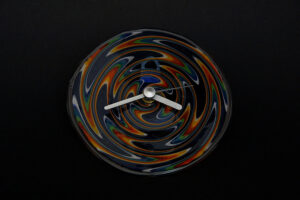
Before we go to break, I want to highlight one more piece of news. In a new paper in the journal Nature Astronomy, researchers Geraint Lewis and Brendon Brewer show evidence for time appearing to tick slower in the early universe.
According to relativity, as our universe expands, we should see the most distant events playing out in slow motion. The details on how this works are super cool, and super complex. For now… all you need to understand is Einstein’s work predicted we should see the distant universe doing things in slow motion.
And, looking at 190 quasars at a variety of distances, Lewis and Brewer were able to see this prediction. Essentially, as quasars eat material, they can flicker and flare. AS they describe it, by “combining the observations taken at different colors (or wavelengths) – green light, red light and into the infrared – they were able to standardize the ‘ticking’ of each quasar.” Statistical analysis of all these ticking systems showed that we perceive the quasars to tick slower and slower the farther out we look.
This is sadly an us thing; time didn’t actually tick slower to any observers in the early universe. It just seems… thanks to relativity… that time slows with distance in an expending universe.
Does your brain hurt yet?
Reference:
Lewis, G.F., Brewer, B.J. Detection of the cosmological time dilation of high-redshift quasars. Nat Astron (2023). 10.1038/s41550-023-02029-2
